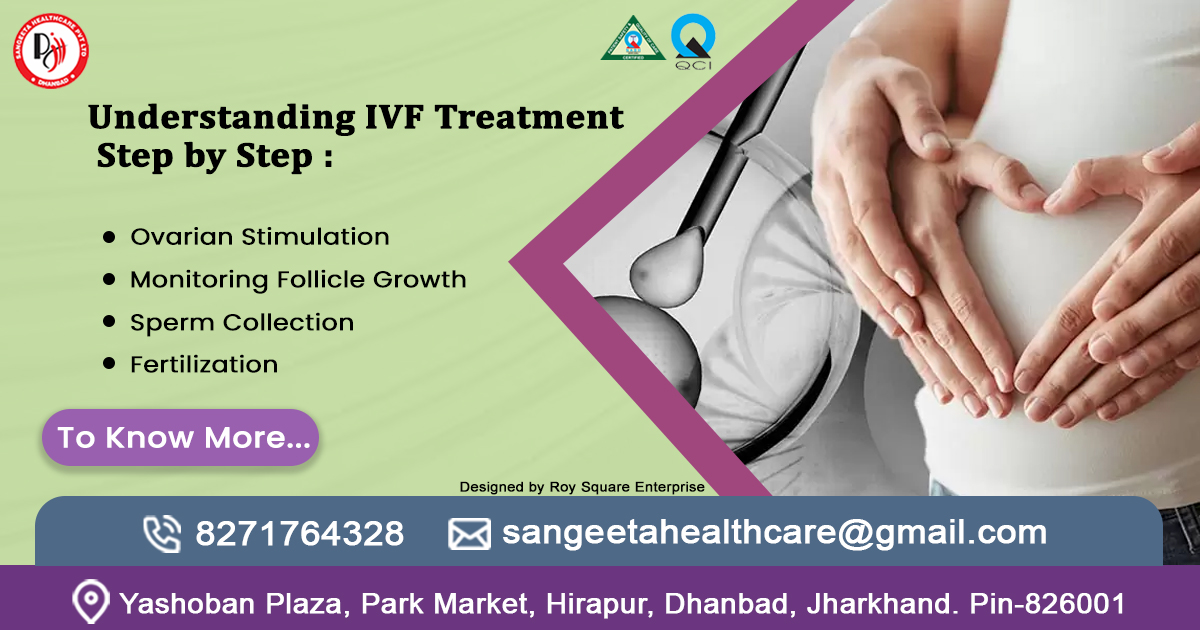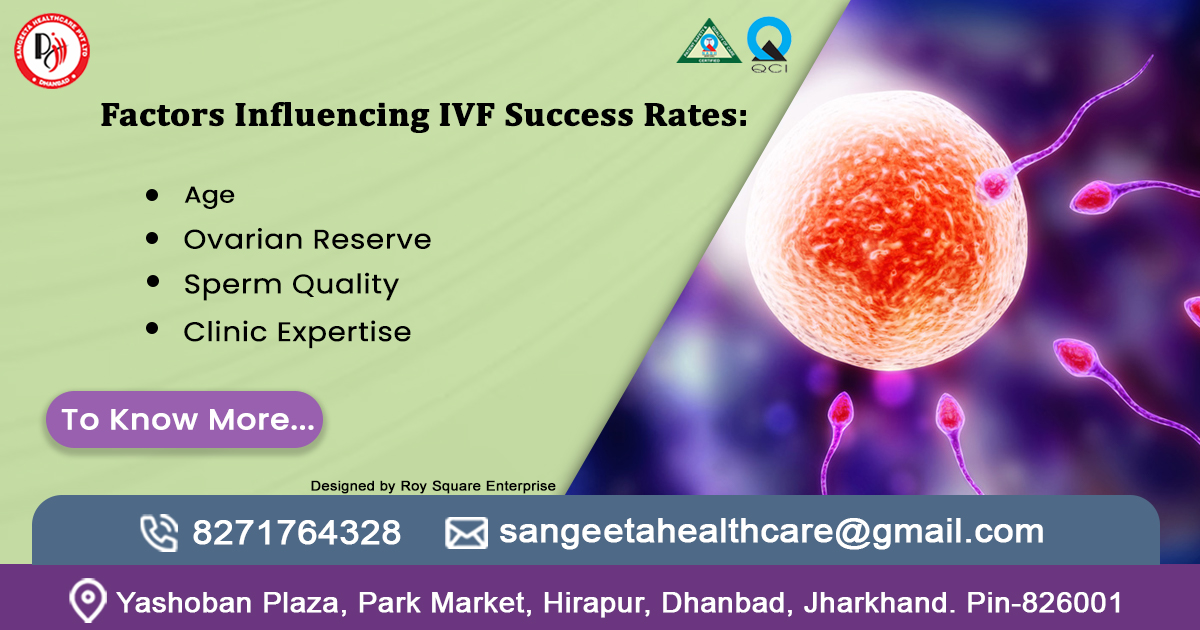In vitro fertilization (IVF) has revolutionized the field of reproductive medicine, offering hope to millions of couples and individuals struggling with infertility. Whether you’re a medical professional or someone exploring fertility options, understanding IVF treatment step by step is crucial to making informed decisions. This blog will walk you through the process, discuss the role of injections for IVF treatment, and shed light on factors influencing IVF success rates.
What is IVF Treatment?
IVF, or in vitro fertilization, is a type of assisted reproductive technology (ART) that involves fertilizing an egg with sperm outside the body in a laboratory setting. Once fertilization occurs, the resulting embryo is transferred to the uterus, where it can implant and develop into a pregnancy. IVF is often recommended for individuals or couples facing issues such as blocked fallopian tubes, low sperm count, advanced maternal age, or unexplained infertility.
Understanding IVF Treatment Step by Step :
The IVF process is a multi-stage procedure that requires careful planning and monitoring. Here’s a breakdown of each part, explained step by step in simple terms :

-
Ovarian Stimulation :
The initial stage of IVF involves stimulating the ovaries. During a natural menstrual cycle, only one egg is typically released. For IVF, several eggs are required to improve the chances of success. Fertility drugs, usually given as injections, are used to stimulate the ovaries to produce multiple eggs. These injections contain hormones such as FSH and LH.
-
Monitoring Follicle Growth :
Throughout the stimulation phase, the patient undergoes regular monitoring through blood tests and ultrasounds. This helps track the growth and development of ovarian follicles, which house the eggs. Adjustments to medication dosages may be made based on the response.
-
Egg Retrieval :
Once the follicles reach the desired size, a trigger shot (hCG injection) is administered to mature the eggs. Approximately 36 hours later, a minor surgical procedure called egg retrieval is performed. Under sedation, a needle is guided through the vaginal wall to collect the eggs from the follicles.
-
Sperm Collection :
On the day of egg retrieval, a sperm sample is taken from the male partner or a donor. The sperm is then processed in the lab to isolate the healthiest and most active sperm for fertilization.
-
Fertilization
The eggs and sperm are mixed together in a lab dish to allow fertilization to occur. In some cases, intracytoplasmic sperm injection (ICSI) may be used, where a single sperm is directly injected into an egg to facilitate fertilization.
-
Embryo Development
Fertilized eggs (now embryos) are monitored for 3-5 days as they develop. The embryologist evaluates their quality and selects the best embryos for transfer.
-
Embryo Transfer
The final step is the embryo transfer, where one or more embryos are placed into the uterus using a thin catheter. This is a quick, painless procedure that does not require anesthesia.
-
Pregnancy Test
About 10-14 days after the embryo transfer, a blood test is conducted to check for pregnancy. If successful, the patient is referred to an obstetrician for prenatal care.
The Role of Injections for IVF Treatment
Injections play a critical role in IVF treatment, particularly during the ovarian stimulation phase. The injections include hormones that help the ovaries release several eggs.Common medications include:
– Gonadotropins: These stimulate the ovaries directly and are often used in combination with other drugs.
– hCG (Human Chorionic Gonadotropin: This trigger shot helps mature the eggs before retrieval.
– GnRH Agonists/Antagonists: These prevent premature ovulation, ensuring the eggs are retrieved at the right time.
Injections are crucial for IVF success, but they may lead to side effects like bloating, mood changes, or slight discomfort. Your fertility specialist will guide you on how to manage these symptoms effectively.
Factors Influencing IVF Success Rates
IVF success rates vary depending on several factors, including age, underlying fertility issues, and the quality of the clinic. Here’s a closer look at what impacts IVF success rates:

- Age: Younger women typically have higher IVF success rates due to better egg quality. For women under 35, the success rate is around 40-50%, while it declines significantly after 40.
- Lifestyle Factors: Smoking, excessive alcohol consumption, and obesity can negatively affect IVF outcomes.
- Ovarian Reserve: The quantity and quality of a woman’s eggs play a significant role in IVF success.
- Sperm Quality: Healthy sperm with good motility and morphology increase the chances of successful fertilization.
- Clinic Expertise: Choosing a reputable fertility clinic with experienced professionals can significantly improve your chances of success.
Tips to Improve IVF Success Rates
While IVF success rates depend on various factors, there are steps you can take to optimize your chances:
– Maintain a Healthy Lifestyle: Maintain a healthy lifestyle by eating nutritious meals, staying active, and avoiding smoking or drinking too much alcohol.
– Follow Medical Advice: Adhere to your fertility specialist’s instructions regarding medications and procedures.
– Consider Preimplantation Genetic Testing (PGT): This can help identify genetically normal embryos, increasing the likelihood of a successful pregnancy.
– Manage Stress: High stress levels can negatively impact fertility. Consider mindfulness practices like yoga or meditation.
When to Consider IVF Treatment
IVF may be recommended in the following scenarios:
– Unexplained infertility after trying other treatments.
– Blocked or damaged fallopian tubes.
– Severe male factor infertility.
– Advanced maternal age.
– Genetic disorders requiring preimplantation testing.
Take the Next Step: Consult a Fertility Specialist
If you’re considering IVF treatment, the first step is to consult a fertility specialist. They can evaluate your unique situation, explain the process in detail, and create a personalized treatment plan to maximize your chances of success. Don’t hesitate to reach out to a trusted clinic to begin your journey toward parenthood.
Conclusion
Understanding IVF treatment step by step can empower you to make informed decisions about your fertility journey. From the critical role of injections for IVF treatment to the factors influencing IVF success rates, every aspect of the process is designed to increase your chances of achieving a healthy pregnancy. Whether you’re a medical professional or someone exploring fertility options, IVF offers hope and possibilities for building the family you’ve always dreamed of.
Ready to take the next step? Contact a fertility specialist today to learn more about how IVF can help you achieve your goals.
Here are some FAQs :
- What is IVF Treatment?
Answer: IVF is a fertility treatment where eggs and sperm are fertilized in a lab, and the resulting embryo is transferred to the uterus to achieve pregnancy.
- How Does IVF Work Step by Step?
Answer: IVF involves ovarian stimulation, egg retrieval, fertilization in a lab, embryo development, and embryo transfer to the uterus.
- What is the IVF Success Rate?
Answer: IVF success rates range from 40-50% for women under 35 but decrease with age, dropping to 20-30% for women over 40.
- Are Injections for IVF Treatment Painful?
Answer: IVF injections may cause mild discomfort or bruising but are generally manageable with proper guidance.
- How Long Does an IVF Cycle Take?
Answer: An IVF cycle typically takes 4-6 weeks, including stimulation, retrieval, fertilization, and transfer.
- What Are the Side Effects of IVF Treatment?
Answer: Common side effects include bloating, mood swings, and mild pain. Severe side effects like OHSS are rare.
- Can IVF Guarantee a Pregnancy?
Answer: IVF doesn’t guarantee pregnancy but significantly improves chances for those struggling with infertility.
- How Many Embryos Are Transferred During IVF?
Answer: Usually, 1-2 embryos are transferred to reduce the risk of multiple pregnancies.
- Is IVF Treatment Expensive?
Answer: IVF costs $10,000-$15,000 per cycle, but financing options are often available.
- Who Should Consider IVF Treatment?
Answer: IVF is ideal for couples with infertility, blocked tubes, low sperm count, genetic disorders, or advanced maternal age.


